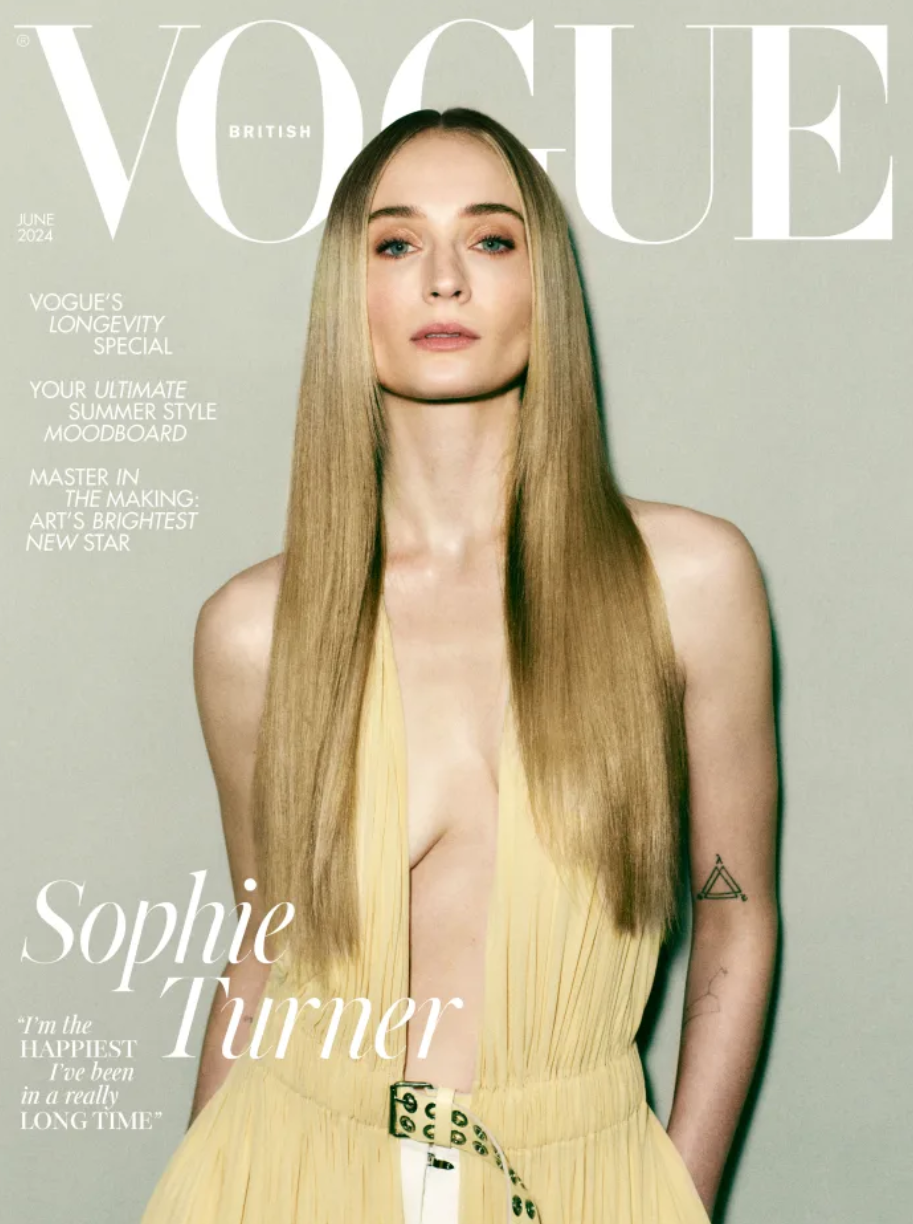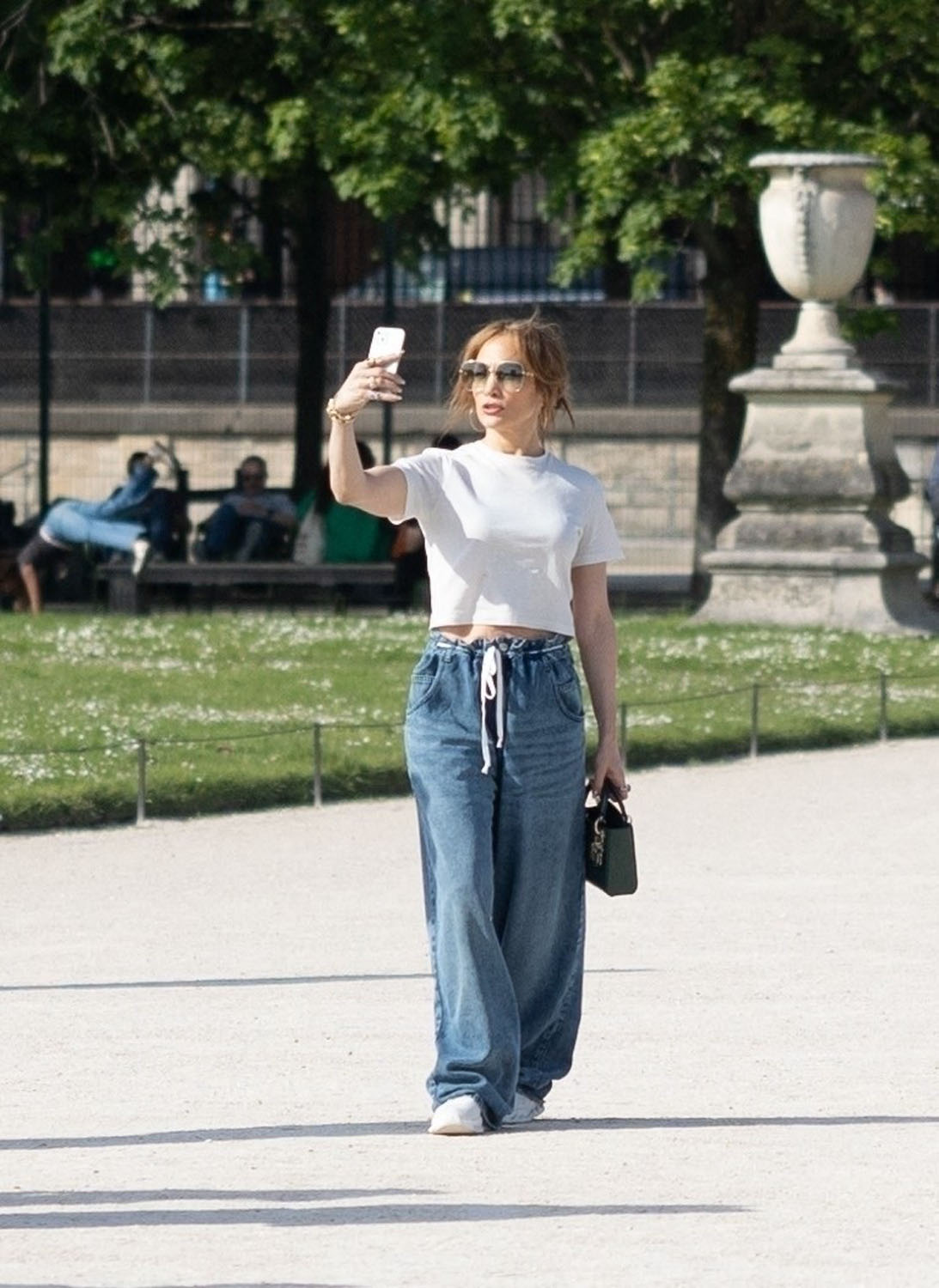The New Sophie Turner covers British Vogue



Was it only nine months or so ago when Sophie Turner and Joe Jonas announced that they’d broken up?! The story, then, wasn’t that a celebrity couple was ending their marriage, it was first how Sophie was portrayed, or how they tried to portray her, in the immediate aftermath, and then the reaction to that characterisation.
You’ll recall, the usual suspect media outlets tried to suggest that Sophie was an absent parent, and that it was Joe who was coming through for his children, and that’s why their relationship was over. Misogyny at work as usual. And usually, because we still exist in these f-cksh-t times, the misogyny has the upper had. What was unusual then about Sophie’s situation is that the narrative about her being to blame was immediately challenged. Whatever stories TMZ was reporting about her alleged shortcomings were drowned out by a lot of online support calling out the grossness of that take. In her new cover interview for British Vogue, Sophie addresses, for the first time, really, what it was like for her during that time. She says she was “in shock” and still in shock over the implication that she was a “wayward mother”. And then super grateful that she had people to back her up, both in her inner circle, but also among the public:
“Her experience, a shameless affront to working mothers everywhere, had struck a nerve in the culture, one that had thousands of fans rushing to her defence online. “If something like this had happened to me 10 years ago I don’t think I would have had the same support. I just feel very lucky to be alive in a time when people are open-minded,” she says.”
Some people are open-minded. But there are a LOT of people who aren’t. After all, there’s an athlete making headlines today for sharing his ignorance at a women’s graduation ceremony of all places, mansplaining what will make them the happiest and most fulfilled, and it’s not their careers or education.
My point is, looking back on Sophie’s situation last September, it was extraordinary that during the lowest point of her life, as her marriage was imploding, she wasn’t villainised in the court of public opinion. I mean, those assholes tried it – but this time they did not prevail.
That said, on the subject of WHO was trying it, she doesn’t go there with Vogue. She speaks neutrally about Joe, for legal reasons, likely, but also because at this point, now that they’ve gotten through the ugliness, there’s no point in extending it.
She does, however, briefly discuss Taylor Swift, and how it was Taylor who opened up her home to her during those first weeks in New York, and what an enormous assist that was for Sophie.
That’s just a short part of a very long and candid interview though. And Sophie gets into a lot of detail in this piece about many parts of her life. She’s so honest about struggling with disordered eating, how becoming a mother helped change her perspective about her body, but also how it’s still a very real issue for her, one that she continues to work on, in therapy and with her community of friends and family members.
“I know when I’m in a bad headspace that the eating thing will always flare up,” she explains. “But now I regulate it by sitting in the discomfort and just getting used to that feeling of being full. It’s all exposure therapy. I think life is exposure therapy.”
Turner is an ardent advocate of therapy and has taken medication to help with her anxiety and depression in the past, though she is currently not taking any. “Not since I moved back to the UK,” she says. “Which is great and also surprising, because I anticipated that I’d need to – now perhaps more than ever.” I’m curious to know what might have made the difference. “There’s something about a community and a support system that I’ve never realised is so important up until now. And I think the reason I was on medication for so long is because I didn’t have those people with me. Now that I’m back home, I’m actually the happiest I’ve been in a really long time. I’m starting over again, rediscovering what I like to do, who I like to be with.”
In her case, when she talks about “exposure therapy”, it’s basically being an adult. And that to me might be the most fascinating part of this profile – how Sophie describes her life experience up to this point, having gone through adolescence as a young actor, becoming more and more famous just as she was making the transition from girl to woman.
She had her first date when she was 20 – and it was Joe, who was six years older. He proposed the following year and, as she says:
“It was really surreal, like a fever dream. Because he was older than me, I just felt like I was really taken care of, to the point I came back home and didn’t know how to do anything for myself.”
Sophie pretty much went from child stardom right into being a wife, and then a mother. Living in a foreign country, away from her people, and not having much opportunity to meet friends she could relate to has shaped almost the last decade of her life. So it’s probably not a mystery why the marriage fell apart – she very possibly outgrew the relationship because she was still growing into herself. And figuring out how she wanted to live, where she wanted to live, and with whom.
Sophie Turner is now just 28 years old, and discovering who Sophie Turner is, at least right now. She’s meeting Sophie Turner and whoever that ends up being is the one, going forward, from this point, is the person we, the audience, will be meeting too. That starts with her new series, Joan, that is expected to premiere some time this fall, just about a year after her divorce.
Click here for more on Sophie in British Vogue. And join us in Squawking about this today! (app link here)

